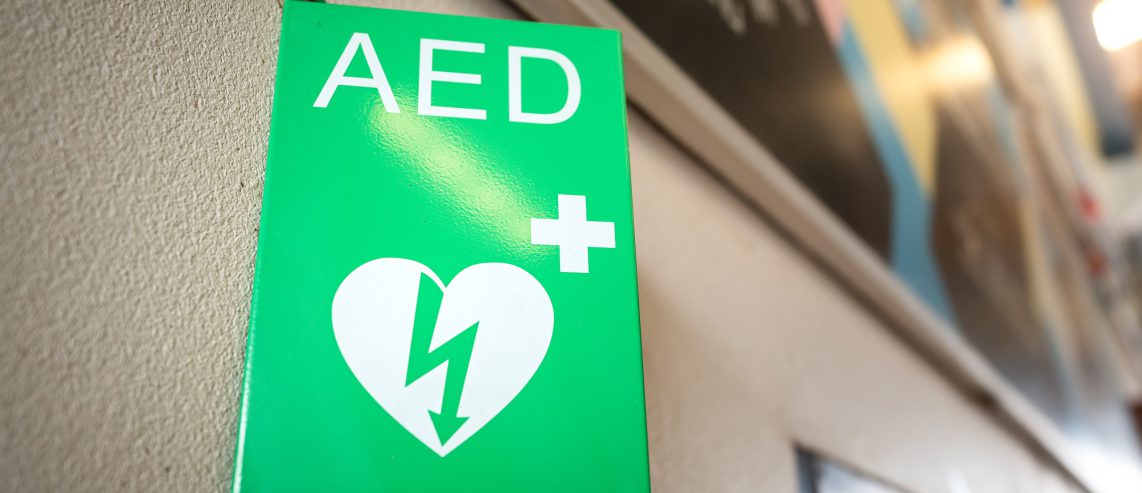More than 23,000 cardiac arrests happen to children under 18 each year. Of those, nearly 40% of cases are because of sports-related activities.
This medical emergency also causes 75% of young-athlete deaths. That’s according to the American Heart Association (AHA).
Cardiac arrest happens when the heart stops working properly and stops beating. It also stops blood flow to the brain, lungs, and other organs.
This causes the person experiencing it to become unresponsive and struggle to breathe. Remembering that cardiac arrest can happen anytime, anywhere, and to anyone — even children — is important.
A person in cardiac arrest can survive for only a few minutes without help. Hands-only cardiopulmonary resuscitation (CPR) and automated external defibrillators (AEDs) can double or triple the chances of survival. AEDs are devices that measure a heart’s rhythm and deliver a shock to make the heart start beating again.
They often come in small red or white cases. They’re available in public spaces like office buildings, movie theaters, shopping malls, schools, and stadiums.
They’re also safe to use and give clear directions. This allows bystanders to use them with ease during cardiac emergencies.
Never Miss a Beat!
Subscribe to Our HealthBeat Newsletter!
Thank you for subscribing!
You can now select the specific newsletters you'd like to receive.
You are already subscribed.
Subscribe to more newsletters in our email preference center.
Sorry, an error occurred. Please try again later.
Get Healthy Tips Sent to Your Phone!
What Pennsylvania Senate Bill 375 Does
Pennsylvania Senate Bill 375 would require schools to develop and practice clear cardiac emergency response plans. This would include having an AED at all school sporting events and activities. As a result, student safety in schools across the Commonwealth would increase.
The bill would also require schools to:
- Add AED expiration dates to the annual reports that schools already submit.
- Develop or improve sudden cardiac arrest plans until they meet national standards.
- Have at least one AED in each school building and at each sporting or practice event.
- Hold annual cardiac arrest response drills with the Pennsylvania Department of Education’s help.
- Make CPR and AED training available at least once every two years and allow volunteers to participate in it.
- Make sure at least five trained individuals have access to AEDs.
- Train employees in AED use and CPR.
Why This Matters
More than 1.7 million children learn in Pennsylvania public schools. That’s according to the Pennsylvania School Boards Association.
Cardiac emergency response plans, including sudden cardiac arrest drills, are essential for emergency preparedness. This is true for public school students, teachers, and staff.
Sen. Rosemary Brown has sponsored Senate Bill 375. The bill creates a safer environment for students, coaches, volunteers, and spectators who take part in school sporting events and activities. This means saving more lives when minutes matter most.
The legislation would make several additions to the Public School Code of 1949. It also has bipartisan support in the Pennsylvania General Assembly.
The Senate Education Committee passed it unanimously in June. It’s now up for consideration in the Senate.
“We have all heard about terrible tragedies that occur when a young athlete has a sudden cardiac event during a school sporting event,” said UPMC Children’s Hospital of Pittsburgh President Diane Hupp in a recent letter of support for Senate Bill 375.
“When these events occur, it is imperative to have an AED present and to have staff who are trained in CPR and AED use on-site,” she wrote. “Such plans and training ensure the best chance of survival. In fact, in schools with AEDs, approximately 85% of children survive cardiac arrest, which is a remarkable seven times the overall survival rate for children.”
UPMC urges the Pennsylvania General Assembly to swiftly pass this legislation. Signing Senate Bill 375 into law can save more lives.
UPMC’s Minutes Matter Initiative
In June 2023, UPMC launched the Minutes Matter initiative. The initiative gives communities better access to basic information on common life-threatening emergencies. These include cardiac arrest, opioid overdoses, uncontrolled bleeding, and mental health crises.
Minutes Matter focuses on these because bystanders are often first on the scene when they take place. Basic resources and education can empower a community to save more lives.
UPMC’s Minutes Matter initiative and Senate Bill 375 share this common goal.
To read Senate Bill 375 and check its status, click here.
To learn more about UPMC’s Minutes Matter, visit MinutesMatter.UPMC.com.
Sources
About Government Advocacy
UPMC is a world-renowned health care provider and insurer headquartered in Pittsburgh, Pennsylvania. Learn about UPMC’s position on public health issues and gain a better understanding of the initiatives that advance the health care industry.
